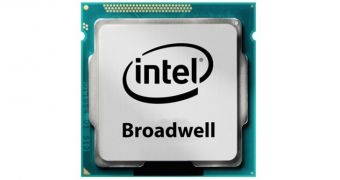A lot of the Chromebooks currently available on the market rely on the Intel platform to get their life juice.
The most low-end arrive with Pentium and Celeron U chips, but there are some like Acer’s latest device, which boasts a Core i3 processor under the hood.
However, Intel is looking to up things in the Chromebook department and will soon provide devices relying on the new Broadwell platform. A recent report by Fudzilla claims that such products will be made available in Q1 2015, a quarter later than their Windows counterparts.
These predictions are made via Intel’s roadmap, which shows us that Chromebooks with Broadwell chips inside will land on the market in early 2015. These new chips will replace the Pentium and Celeron ones.
Judging by Intel’s multiple delays, however, there’s a strong possibility that the new Broadwell Celeron and Pentium chips will end up making an appearance on the market in Q2 2015.
Intel is also preparing Core i5 and Core i7 5th generation processors in Q1 2015, processors that will replace the current Haswell lineup.
What’s more, models currently running on what’s being called the Essential Series Bay Trail-M chips will be revamped. Soon enough, the Bay Trail-M platform will give up its place and be replaced by Braswell Celeron and Pentium products instead.
Chromebooks are starting to draw more and more attention upon themselves, especially in the business sector. Even if Windows still rules supreme in this ecosystem, Chromebooks are slowly starting to infiltrate it.
For example, just last week numbers coming from research firm NPD showed us that B2B (business-to-business) sales in the US had spiked over 250% in the last year. B2B incorporates governmental establishments, organizations, and businesses that usually buy these machines in bulk.
Currently, Chromebooks are seeing a lot of success in the educational market, which is driving a lot of the sale of these products.
According to NPD, in the first five months of the year, Chromebooks managed to account for up to 35% of all notebooks sales, a percent that translates into 1.4 million units sold.
Microsoft has taken note of this acceleration in popularity related to Chrome OS notebooks, so recently we have seen inexpensive notebooks running Windows 8.1 with Bing make an appearance on the market.
Basically, these notebooks are Chromebooks as far as specs are concerned, only the operating system differs.
With Broadwell inside, Chromebooks might become even more appealing to business users, if we’re not taking into the account the fact that they will be sold for a chubbier price tag.

 14 DAY TRIAL //
14 DAY TRIAL //